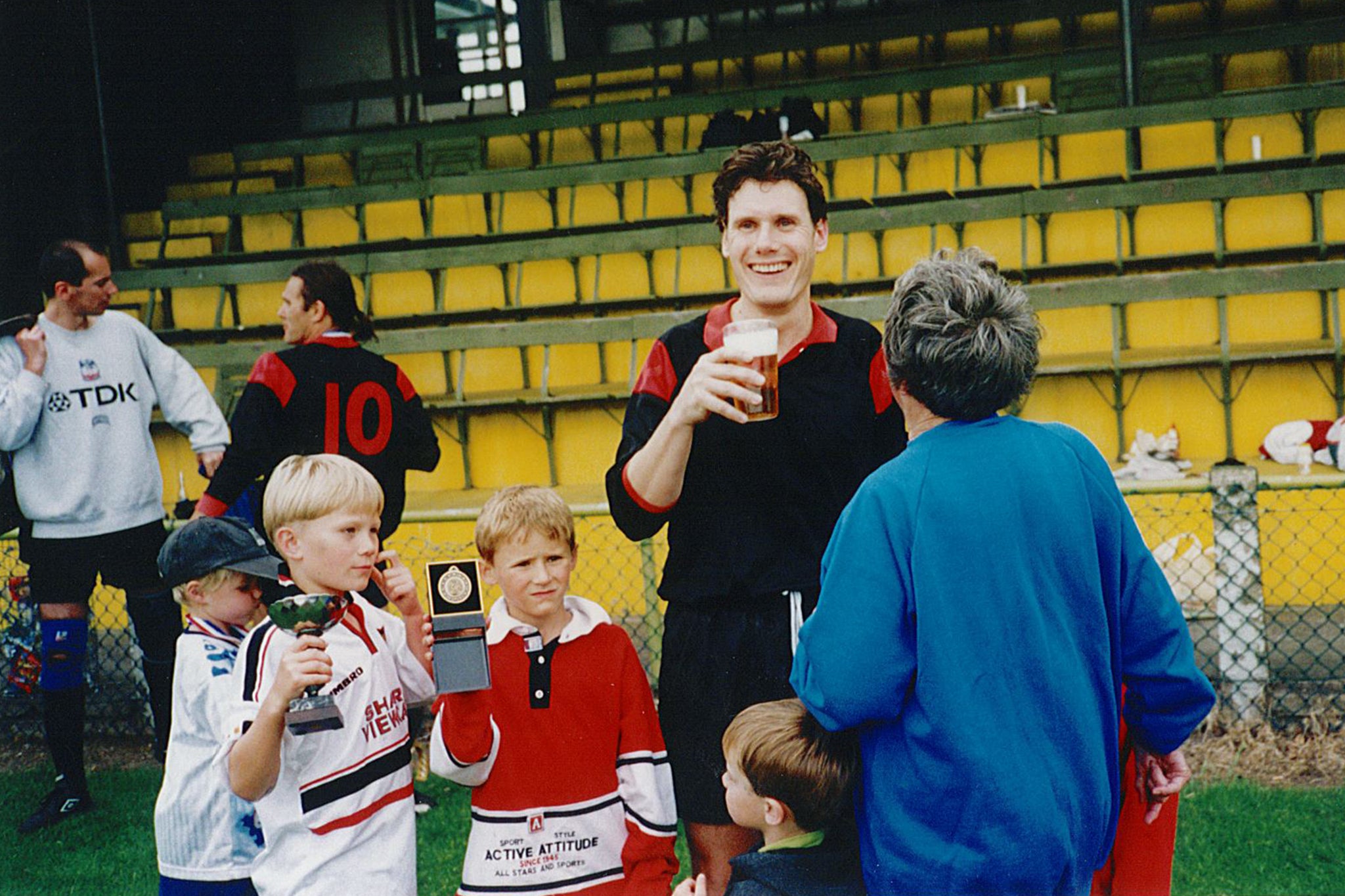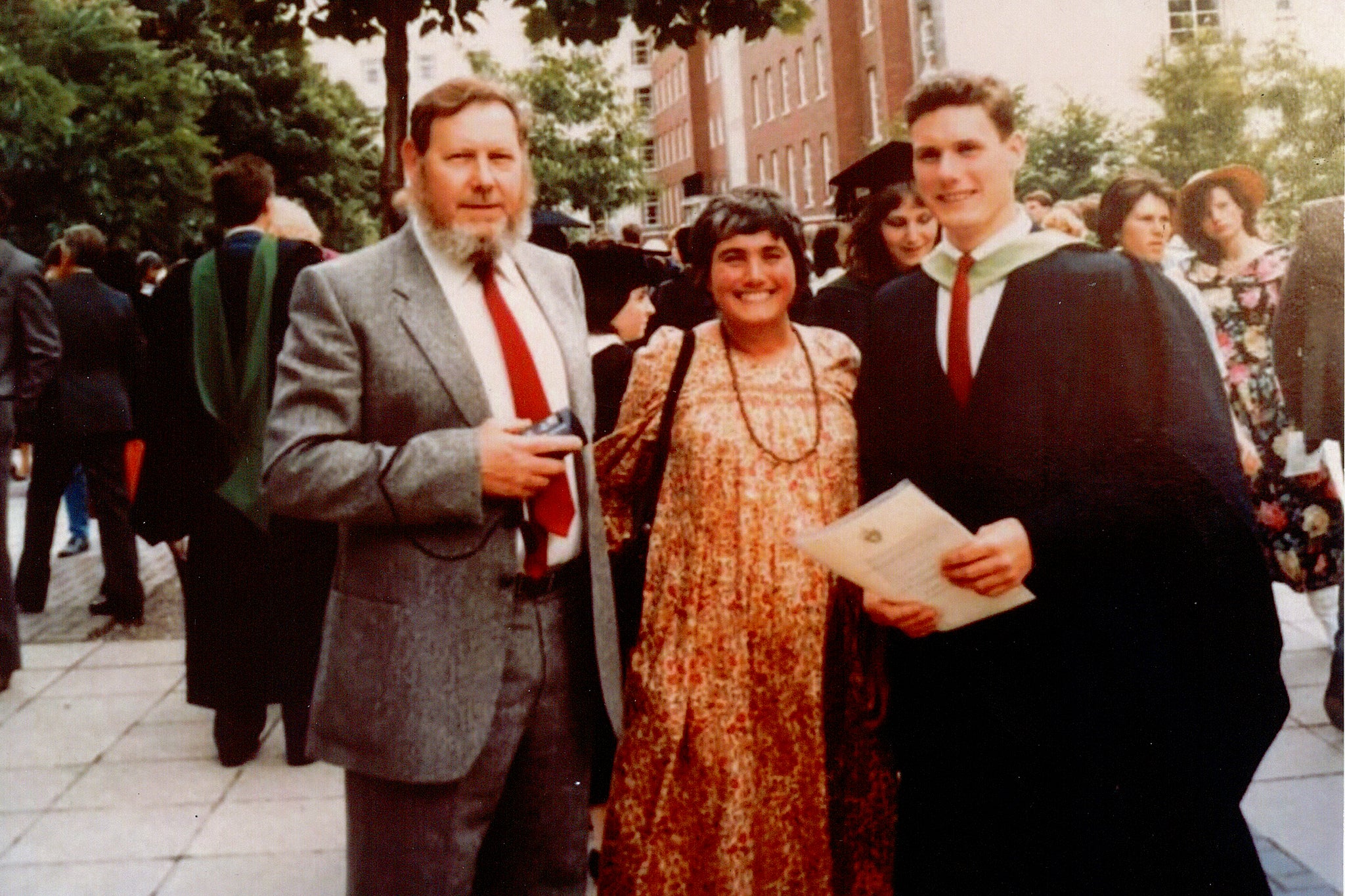The key to understanding Keir Starmer
Detractors have snootily nicknamed him ‘Keith’, a nasal ditherer lacking ‘rizz’, writes Robert McCrum. No surprise then that a new biography of this guarded man destined for No 10 lacks drama, but its author Tom Baldwin does reveal that if the electorate really wants to understand what makes the former lawyer tick, they need to look to the football terraces


We all know that two great armies are on manoeuvres before a decisive battle. The first salvoes have just been fired at by-election skirmishes in Kingswood and Wellingborough. Another engagement looms in Rochdale. Elsewhere, Labour has made a tactical retreat on its £28bn commitment to green investment.
Despite these successes, the press (and some voters) have been merciless: “Dithering Starmer” (The Sun); “Worst antisemitism in 40 years” (The Times); “Labour’s Worst Enemy Might be Itself” (The New York Times). Once again, Keir Starmer has come under fire for failures of leadership, while his party braces itself for action.
We’ve been here before. Labour leaders face a rough passage. When Clement Attlee was transforming post-war Britain, Westminster wits joked that “an empty taxi arrived at No 10, and Attlee got out”.
More brutal, Winston Churchill dismissed his former deputy as deficient in charisma and rhetoric, “a modest man with much to be modest about”.
The Labour politician snootily nicknamed “Keith” continues to endure vicious flak. No “rizz”. Hostile focus groups. A crossfire of negativity: “disappointing”, “grey” and “nasal”.
Never mind that he’s not Tony Blair; like Gordon Brown, Starmer is said to be most charismatic in private. Challenged to better his show-off opponents (Johnson, Truss, Sunak), and tell a sharper story, his reply has been crisp – “I am not them” – but insufficient. Still, there are some clues about what kind of general he’d be.
This late starter didn’t go into parliament “to be in opposition”. Since entering the Commons in 2015, his advance has been relentless.
When he became Labour leader in 2020, his party trailed the Tories by 20 points. Now he commands the field, and is on course to take Downing Street. This new biography (the fourth to be written) is part of a pre-election charm offensive.
So, who is he? In 2023, Starmer was persuaded to cooperate with former Times man Tom Baldwin, a political correspondent steeped in New Labour legend, and on first-name terms with Blair, Brown, et al.

Baldwin’s Starmer is self-contained (“I know who I am”), but “paradoxical”, an unvarnished fighter who’s allowed the reluctant exhibitionism of secret aspirations to release this unauthorised but comprehensive inquiry into a well-defended life. If it lacks drama, that will have been its subject’s intention.
Baldwin hints at the Keir we’ve glimpsed but do not know: a private, decent, transparently honest, clever man – not an intellectual – who nurtures the resilience of the class-torn survivor and belongs to no one (apart from his wife, Vic, and their family).
This paradoxical fellow plays the flute (Mozart and Faure), prefers curry and chips, and meets his mates in the pub after football, but also quoted Philip Larkin in a Commons tribute to the late Queen, and is vulnerable to party ambition.
He’s purged Corbyn, tackled antisemitism, and inspired an air of decency, competence and goodwill, supervising Labour’s resurrection with a fresh but discreet optimism
Before his career came into focus, it was hard-pounding. Starmer is more lawyer than politico, to Baldwin’s exasperation: “No one forced [Starmer] to enter parliament,” he exclaims. “Like it or not, talking about [himself] is now part of the job.”
Within this exercise in pulling teeth lurks the question to which conversations about this leader always return: “Is Keir Starmer at home in his skin?” Had George Orwell written this biography, this is where he would have begun. It’s the enthralling theme of battle-readiness that Baldwin circles like a queasy shark, bamboozled by Sir Keir’s tactical opacity.
The “paradoxes” are as English as they are peculiar. This PM-in-waiting has remarkable gifts of empathy, but few political instincts, no Westminster hinterland, and scant cultural life.
Where Attlee was a London lawyer, Wilson an Oxford economist from middle-class Huddersfield, and Blair a public-school educated barrister, Starmer is named after the Scots founder of his party, and supremely at home amongst ordinary people, with their interests in his marrow.

Only in Britain are such nuances so highly charged. The further he has climbed up the greasy pole, the more “Sir Keir” has instructed his aides to airbrush his knighthood (for his Director of Public Prosecutions service as a lawyer’s lawyer) from public consciousness.
Starmer’s bloodline is rich in Labour DNA – farm labourers, millers, and laundresses, a nurse, and a bus driver, who left few records – and yet, during his vertiginous political ascent, he’s reduced his origins to a haiku: “My father was a tool-maker, my mother a nurse.”
This is authentic, but duller than he is among the people he trusts, a cardboard shield that locates him at Hurst Green, in “a pebble-dashed semi” beneath the Oxted Downs on the Kent/Surrey border. Starmer himself says his first memory is “Dad buying a blue Ford Cortina”.
Far more profound, however, is the memory of his mother Jo’s struggle with Still’s disease, a cruel condition in which the immune system attacks itself, in her case through rheumatoid arthritis.

Her first-born was shaped from an early age by this psychic wound. Perhaps that’s why Starmer often wears the face of a man in grief. He learnt to master his feelings, to shut down instinctually, and become “a very compartmentalised person”.
But also very English and, from his father, immensely practical. The tool-maker’s son likes analysing problems through their component parts to achieve a workable solution. As a hands-on politician, he has become a master of ruthless brevity, a quality he shares with Attlee.
Scattered through Baldwin’s fair-minded, unflashy biography, Starmer’s obiter dicta resonate like a drum beat: “We’ve got to make things”; “get the boring stuff right”; “noise is not change”; “get across the detail”; “no hiding from results”; “I love this country”. This becomes another paradox – the anti-rhetorical English eloquence of a leader who mistrusts “vision” and detests showing off.
Baldwin’s Starmer keeps his eyes on the prize, though not in a way Keir Hardie would understand. In the absence of Labour theory and with virtually no reference to political philosophy, Baldwin analyses Starmer’s “footballism”.

Fully to grasp this Labour commander, you should watch him less on the green leather of the Commons, than on some worn green astroturf, any Sunday in Kentish Town, dashing about in shorts and a blue-green Gaelic football shirt from Donegal.
When not organising eight-a-sides, Starmer will be supporting Arsenal in the West Stand of the Emirates, among a posse of old friends who have nothing to do with Westminster and keep his feet on the ground. Whenever he’s being himself, success is all about “winning hard and playing hard”.
The biographer who once watched Blair play the football card to promote New Labour concedes that, with Starmer, the English game illuminates his approach to life. One constituent observes that his gamesmanship reveals everything: “Keir is fair – always fair. But, my God, he’s also hard.”
Football provides values deeper than any of the Labour “isms” Starmer grew up with in the 1980s. Footballism has shaped his understanding of the English voters’ sense of place. Baldwin’s leader is passionate about “identity”. Wherever he travels, he carries a wallet inscribed with “Take Me Back To Kentish Town”.

Where cynical commentators recoil in horror, Baldwin seems persuaded that footballism holds the key to Starmer’s two dominant qualities: his pragmatic reluctance to be pigeonholed ideologically, and his dedication to the art of winning.
The disrupted years 2015-2023 witnessed a masterclass in both. After the humiliation of 2019, as an ex-Corbyn shadow minister, he could begin to prise his party free from the dead claw of Brexit.
Once the Tories imploded, this canny lawyer with impeccable Labour roots became the old-school MP who could steer the party towards the middle ground where political victories are won.
Starmer has also taught his team the hard lessons of winning. He’s purged Corbyn from the party, tackled antisemitism, and inspired an air of decency, competence and goodwill, supervising Labour’s resurrection with a fresh but discreet optimism.
According to Baldwin, Starmer’s friends believe he’ll surprise us. Our next serious prime minister? Watch this space. Attlee may have some competition.





Join our commenting forum
Join thought-provoking conversations, follow other Independent readers and see their replies
Comments